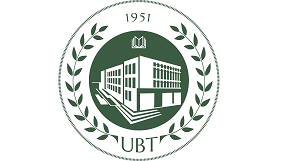JOHANNES MUNZ1*, RHEINRICH SCHUELE2
|
1 Institute of Applied Agricultural Science, Nuertingen-Geislingen University, Neckarsteige 6-10, 72622 Nuertingen, Germany 2 Faculty of Agriculture, Economics and Management, Nuertingen-Geislingen University, Neckarsteige 6-10, 72622 Nuertingen, Germany * Correspondence: johannes.munz@hfwu.de Abstract Digitalization of agriculture shows positive effects on farm profitability but is also considered to be of great importance when it comes to the efficient use of limited resources and countering global problems (e.g. climate change, food security). However, since the introduction of the first precision farming technologies around 1990, high adoption rates could not be observed, especially in areas where small-scale farming is dominant. Until today, farms successfully applying smart farming technologies are mainly larger operations. Therefore, this paper is dedicated to analyze economic success factors, which favor the use of digital technologies in small-scale agricultural areas, but also to highlight the limitations of digitalization in these structures. Keywords: Smart Farming Technologies, Economics, Small-Scale Agriculture, Case Study, Sensitivity Analysis |
